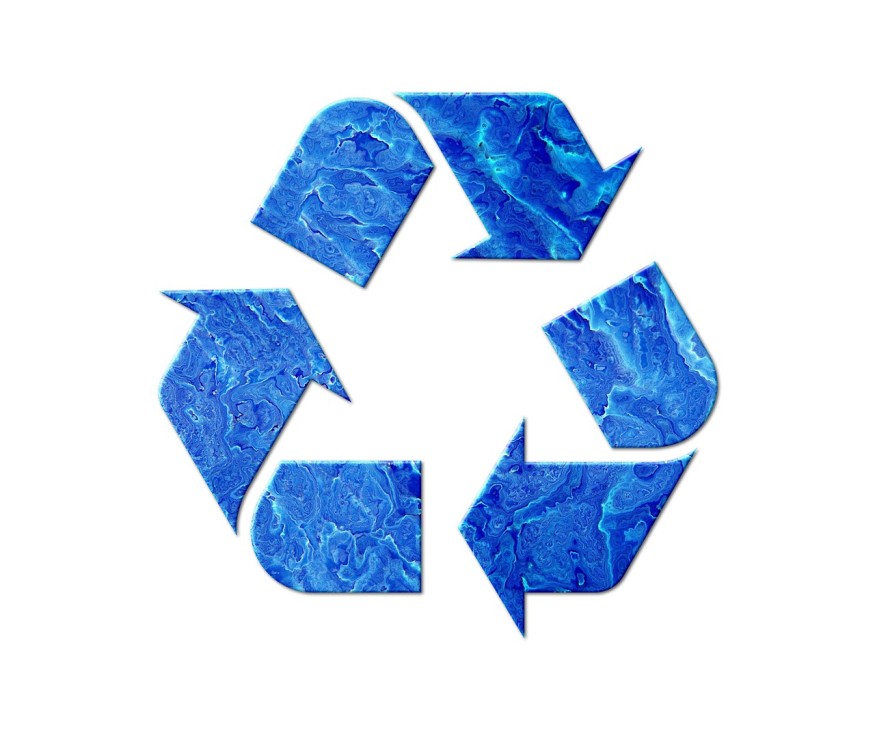
As the world confronts escalating environmental concerns and water scarcity, the need for sustainable solutions to preserve our vital resources is more urgent than ever. One such necessity is water recycling.
In this article, we will explore a variety of innovative and effective strategies everyone can adopt, whether businesses, governments, or individuals, to help safeguard water for generations to come.
1. Greywater Recycling
Greywater recycling is an effective, sustainable solution for water conservation.
This system involves collecting non-potable water from sources like washing machines or kitchen sinks, filtering it, and reusing it. Typically, this recycled water is utilized to irrigate gardens or flush toilets.
The implementation of greywater recycling significantly reduces the demand for fresh water. Furthermore, the widespread adoption of this method can contribute greatly to global sustainability efforts.
2. Rainwater Harvesting
Another key sustainable solution for water recycling is rainwater harvesting.
This approach gathers rainwater from rooftops, directing it into storage barrels or tanks instead of allowing it to simply run off. The stored rainwater can later be used for varied purposes, such as gardening or indoor cleaning chores, effectively reducing the demand for our main water supplies.
The best bit about rainwater harvesting is that it provides a practical means of conserving water. Better still, this solution encourages us to make the most of nature's offerings in order to preserve our environment and future resources.
3. Advanced Wastewater Treatment
A noteworthy advancement in the field of water recycling is the use of advanced wastewater treatment plants. These state-of-the-art facilities utilize cutting-edge filtration technologies to effectively remove contaminants from wastewater, enhancing its suitability for reuse.
Key among these innovative solutions are Empowered Water generators that employ electrolysis to eradicate harmful substances while retaining beneficial nutrients such as nitrogen and phosphorus. These retained nutrients can prove advantageous for agricultural applications.
The implementation of these treatment plants on a global scale can greatly increase the availability of reusable water sources, consequently reducing our reliance on freshwater supplies.
4. Onsite Treatment in Businesses and Industries
Industries and businesses have a pivotal role to play in water recycling efforts, particularly through the deployment of onsite treatment facilities. These facilities allow organizations to treat and reuse water multiple times during production processes before it's finally discarded into the environment.
The benefits are twofold: firstly, this drastically reduces fresh water consumption within industries, thereby helping conserve natural resources. Additionally, onsite treatment often results in cleaner wastewater being discharged into natural bodies of water, thus reducing pollution levels.
5. Water-Saving Measures at Home
Believe it or not, small-scale home solutions can make a significant difference in water conservation as well. Installing low-flow showerheads and faucets, for instance, can reduce household water usage by up to 60%. This not only saves money but also contributes to the goal of sustainability.
Furthermore, choosing appropriate plants and soil for your garden, like drought-tolerant plants, also helps in conserving water. These require less irrigation, while compost can enrich the soil's ability to retain moisture.
6. Education as a Solution
The power of education in fostering sustainable water recycling practices cannot be overstated. Raising awareness about the importance of water conservation and teaching practical ways to reuse and recycle water can help the society adopt more environmentally friendly habits.
For instance, understanding the role of shorter showers or why using rain barrels is beneficial can spark significant changes in everyday behaviors. Regardless of age, everyone from children to adults can play a vital role in this critical mission.
7. Regulation Enforcement
This rundown wouldn't be complete without mentioning the importance of regulation enforcement in the grand scheme of sustainable water recycling solutions. Policing industrial discharge of wastewater not only helps prevent environmental damage but also encourages industries to adopt sustainable habits.
Transparency and accountability are crucial in this endeavor. Tough regulations mean companies must exhibit responsible water consumption and waste management practices. That way, we can foster a culture where sustainability is seen not just as an option but a necessity.
© 2025 NatureWorldNews.com All rights reserved. Do not reproduce without permission.





